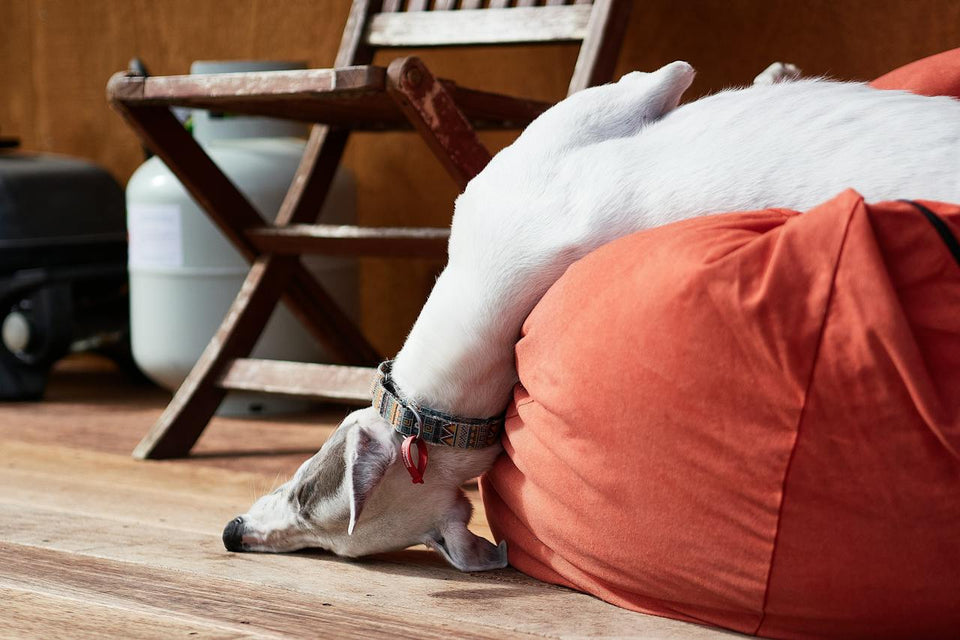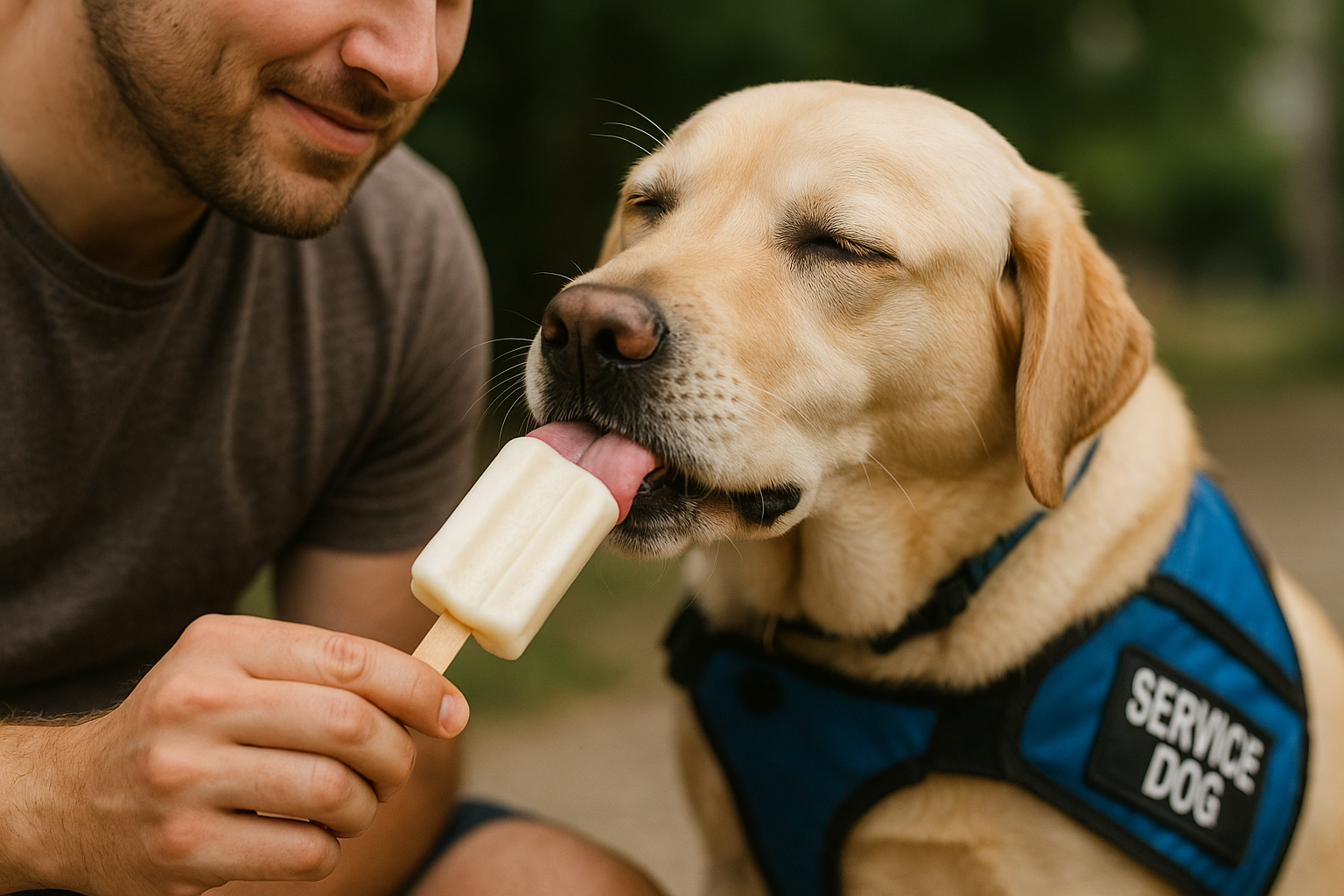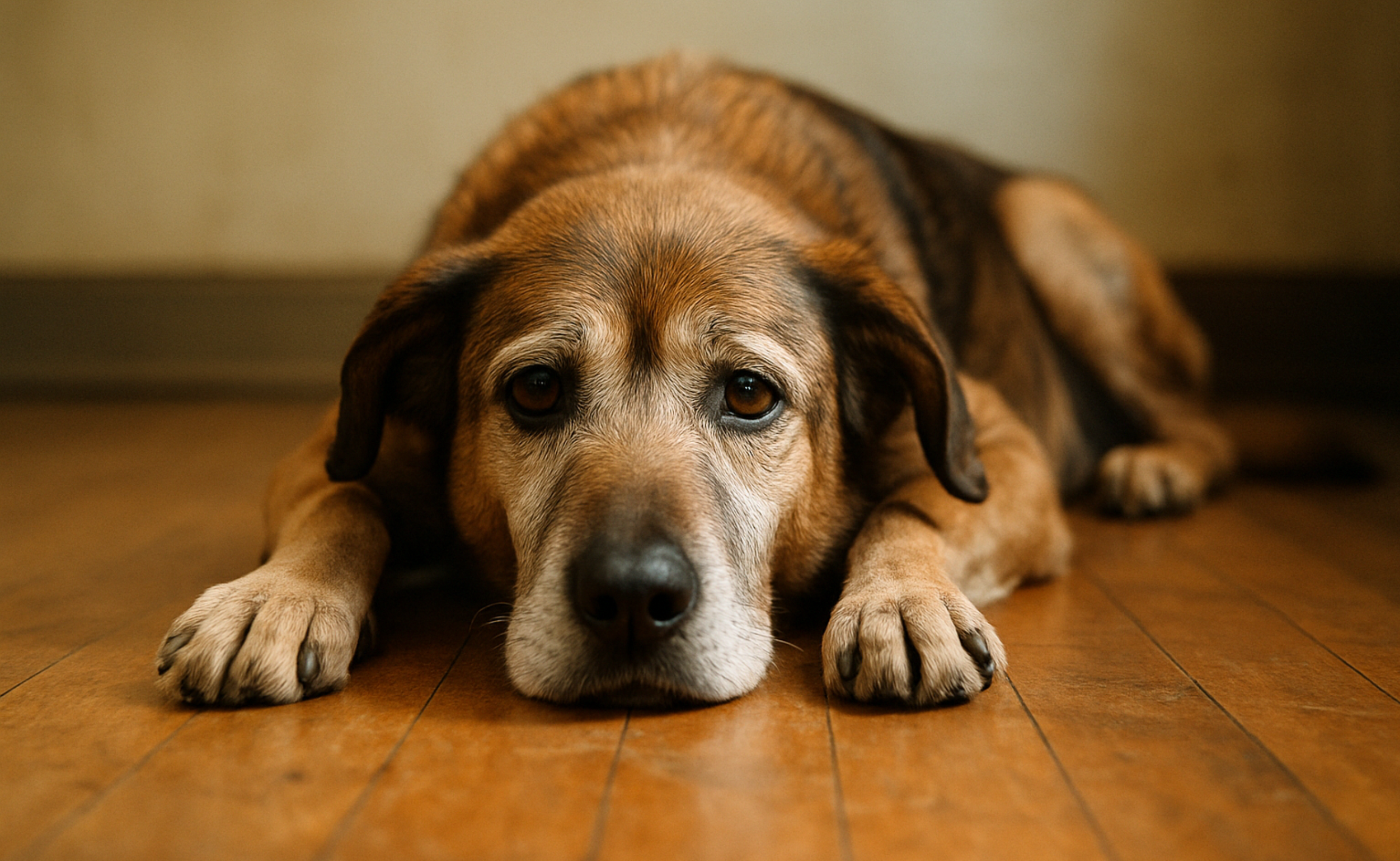Top 10 Reasons Behind Dogs' Excessive Sleeping Habits

Have you ever pondered why your adorable, furry companion seems to be in a perpetual state of slumber? It's a fascinating world, understanding why dogs sleep the way they do. Just like us, their sleep is influenced by a myriad of reasons – a mesmerizing blend of age-related changes, distinct breed-specific traits, dietary habits, and even their emotional state.
Each of these elements weaves its own narrative in the tapestry of your dog's sleep pattern, influencing not just the duration but also the quality of their rest. Dive into this enlightening journey as we unveil the top 10 reasons behind your dog's excessive sleeping habits. Along the way, you'll gain insights on how to enhance their sleep, ensuring they enjoy the most peaceful and rejuvenating rest.
Age-Related Changes in Sleep
As dogs age, their sleep habits evolve significantly. Older dogs often require more sleep than their younger counterparts. This tendency can be attributed to a natural decline in energy levels as they grow older. Senior dogs might also face various physical health challenges that necessitate more frequent or prolonged rest periods. While these issues may not always be overtly visible, they can significantly influence sleep patterns.
Comfortable sleeping arrangements become increasingly vital for older dogs. Hard surfaces can exacerbate discomfort in aging joints and muscles. Orthopedic beds are especially beneficial in these scenarios, providing the necessary support and comfort. These beds offer a delicate balance of softness and firmness, helping to alleviate discomfort and facilitate deeper, more restorative sleep.
You may also like: Understanding Why Your New Pup is Sleeping So Much
Breed-Specific Sleeping Traits
Different dog breeds exhibit unique sleeping characteristics. Certain breeds are genetically predisposed to sleep more. For example, larger breeds like Great Danes and Mastiffs generally require more sleep than smaller breeds such as Terriers or Chihuahuas.
The level of physical activity a breed typically engages in can also influence their sleep requirements. More active breeds may need less sleep, while less active breeds might spend a larger portion of their day resting. Tailoring the sleep environment to cater to these breed-specific needs is essential to ensure optimal rest.
Diet and Nutrition
The diet of a dog plays a crucial role in its sleep habits. Foods high in specific nutrients can boost energy levels, whereas others might induce lethargy. The quantity of food is just as important as the quality; overfeeding can lead to weight gain, which in turn can disrupt a dog's sleep patterns.
A balanced diet is key to maintaining regular sleep patterns. Ensuring that your dog receives the right balance of nutrients can help prevent excessive sleepiness. Changes in a dog's sleeping habits could be a signal to review and possibly adjust their diet.
Exercise and Activity Levels

There is a clear connection between a dog's level of exercise and their sleep patterns. Regular physical activity is crucial for maintaining a healthy sleep schedule. Dogs that get sufficient exercise typically have more regular sleep patterns, while those with insufficient activity might experience disrupted sleep.
Beyond physical health, daily walks and playtime also contribute to mental well-being. Insufficient exercise can lead to behavioral changes, including increased sleep. Therefore, a balanced routine that includes both physical and mental stimulation is important for promoting better sleep habits.
Health Issues and Sleep
Various health problems can lead to increased sleep in dogs. It's important to be vigilant for changes in sleeping patterns, as these can be early indicators of underlying health issues. Regular veterinary check-ups can help identify and manage any health conditions that might be affecting your dog's sleep.
Effective management of health issues often results in improved sleep. Furthermore, a comfortable bed can aid in recovery and rest. A well-supported bed provides a cozy spot for your dog to recuperate and relax, which could potentially improve their sleep quality.
You may also like: Why Dogs Yawn, and When to Pay Attention
Mental Stimulation and Sleep
Mental engagement directly affects a dog's sleep. A stimulated mind can lead to a more balanced sleep pattern. On the flip side, boredom can often result in excessive sleeping. It's a subtle balance; keeping your dog's mind active without overstimulating them is key. Interactive toys and activities play a significant role in this. They not only entertain but also challenge your dog's cognitive abilities.
Training and mental exertion are closely linked to sleep quality. Regular training sessions provide mental exercise, which can help regulate sleep patterns. It's not just about physical tiredness; a mentally stimulated dog is likely to have a more fulfilled, restful sleep. Maintaining mental health is essential for balanced sleep patterns, as it ensures that your dog's mind is as active and engaged as their body.
Environmental Factors
The environment in which a dog sleeps greatly influences the quality of their rest. A quiet, safe sleeping area is fundamental. Dogs, much like humans, need a space that feels secure and comfortable. The temperature of this space is also critical. A room that's too hot or too cold can disrupt sleep.
Having a dedicated sleep space is vital. This area should be exclusively for your dog to relax and sleep. An orthopedic bed from Paw.com can significantly enhance this environment. These beds provide the right support and comfort, aiding in better sleep quality.
Seasonal and Weather-Related Influences

Seasonal changes often impact a dog's sleep patterns. In colder months, you might notice your dog sleeping more. The chilly weather naturally induces a desire for more rest. Conversely, during hotter periods, dogs might find it harder to sleep comfortably.
The amount of daylight also plays a role in regulating a dog's sleep. Longer days can lead to changes in sleep patterns. Adapting the sleep environment with these seasonal changes in mind is important. It ensures that regardless of the weather or season, your dog has a comfortable place to rest.
Emotional Well-Being and Sleep
Emotional well-being is deeply intertwined with sleep. Stress and anxiety can significantly disrupt a dog's sleep pattern. Signs of emotional distress might manifest in altered sleeping habits. Creating a stable, loving environment is essential in mitigating these issues.
There are various techniques to alleviate anxiety and improve sleep. Consistent routines, comforting presences, and familiar objects can all contribute to a sense of security. The role of comfort and security in emotional health cannot be understated, especially when it comes to quality of sleep.
Social and Family Dynamics
The dynamics within a household can affect a dog's sleep. Changes in the family routine, such as a new work schedule or the addition of a family member, can disrupt a dog's sleep pattern. Dogs are sensitive to these changes and may need time to adjust.
The interaction with other pets can also influence sleep. Socialization plays a crucial role in regulating sleep. Dogs that are well-socialized and interact regularly with other pets or people often have more regular sleep patterns. Creating a harmonious environment, where a dog feels a part of the family dynamics, is key to promoting better sleep.
Enhancing Your Dog's Sleep Quality for a Healthier, Happier Life
Delving into the top 10 reasons behind dogs' excessive sleeping habits, we discover a fascinating world where mental stimulation and environmental factors play crucial roles. For you, the dedicated owner, grasping and shaping these elements is key to boosting your furry friend's sleep quality. Embracing a holistic approach to their overall health, which encompasses everything from their diet and exercise to their emotional well-being, can dramatically transform their life.
Central to this transformation is creating a nurturing rest area, and that's where Paw.com's orthopedic dog beds stand out, offering unmatched support and comfort for a serene slumber. Remember, enhancing your dog's sleep transcends mere comfort; it's about profoundly enriching their life, paving the way for a happier, healthier existence.
Share this article
written by


